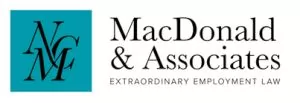In an effort to fulfill his campaign promise to make Ontario "open for business", Premier Doug Ford introduced the "Making Ontario Open for Business Act" on Tuesday. This pro-business legislation introduces sweeping changes, and repeals the bulk of the Wynne government's Bill 148.
Bill 148
Bill 148 was a long overdue update to the Ontario Employment Standards Act. It modernized workers rights to address the current issues affecting workers in Ontario, and to reflect the needs of the present workforce.
Most notably, Bill 148 raised the minimum wage in Ontario, introduced equal pay for equal work, increased vacation time, provided employees with personal emergency leave days, unpaid leave for employees who need to care for a critically ill family member, and provided leave for employees who are experiencing domestic or sexual violence.
However, according to the new PC Government, Bill 148 is "burdensome, job-killing red tape" that hinders investment and job growth in Ontario.
What Will the Proposed Changes Do?
The Making Ontario Open for Business Act will, if passed, make the following notable changes, among other changes:
- Freeze the Ontario minimum wage at $14 for two years (until 2020), after which the minimum wage may increase with the rate of inflation. This will prevent the gradual increase to $15 that was proposed by Bill 148;
- Remove the minimum of two (2) paid sick days, and replace it with a minimum of three (3) unpaid sick days;
- Remove the requirement to pay part-time and casual staff at the same rate as full-time workers;
- Cancels the ten (10) personal emergency leave days, and replaces it with three (3) days for personal illness, two (2) for bereavement and three (3) for family responsibilities; and
- Repeals the changes to the Labour Relations Act that would make it easier for workers in various sectors to join a union.
The Associates at MacDonald & Associates will keep a keen eye on the progress of the Making Ontario Open for Business Act, and will keep you updated.
The content of this article is intended to provide a general guide to the subject matter. Specialist advice should be sought about your specific circumstances.

